Zhengzi Xu
A Vision for Auto Research with LLM Agents
Apr 26, 2025Abstract:This paper introduces Agent-Based Auto Research, a structured multi-agent framework designed to automate, coordinate, and optimize the full lifecycle of scientific research. Leveraging the capabilities of large language models (LLMs) and modular agent collaboration, the system spans all major research phases, including literature review, ideation, methodology planning, experimentation, paper writing, peer review response, and dissemination. By addressing issues such as fragmented workflows, uneven methodological expertise, and cognitive overload, the framework offers a systematic and scalable approach to scientific inquiry. Preliminary explorations demonstrate the feasibility and potential of Auto Research as a promising paradigm for self-improving, AI-driven research processes.
When GPT Meets Program Analysis: Towards Intelligent Detection of Smart Contract Logic Vulnerabilities in GPTScan
Aug 07, 2023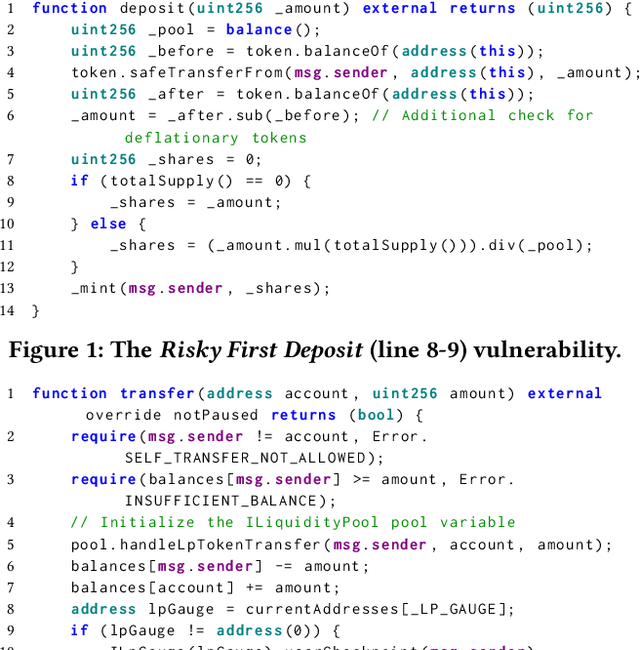
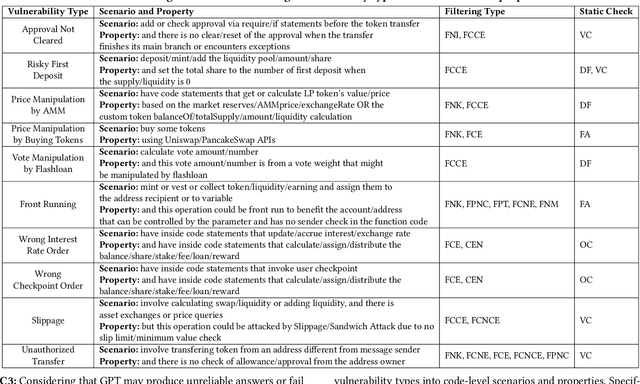
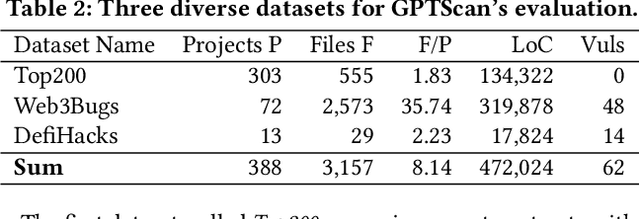

Abstract:Smart contracts are prone to various vulnerabilities, leading to substantial financial losses over time. Current analysis tools mainly target vulnerabilities with fixed control or dataflow patterns, such as re-entrancy and integer overflow. However, a recent study on Web3 security bugs revealed that about 80% of these bugs cannot be audited by existing tools due to the lack of domain-specific property description and checking. Given recent advances in Generative Pretraining Transformer (GPT), it is worth exploring how GPT could aid in detecting logic vulnerabilities in smart contracts. In this paper, we propose GPTScan, the first tool combining GPT with static analysis for smart contract logic vulnerability detection. Instead of relying solely on GPT to identify vulnerabilities, which can lead to high false positives and is limited by GPT's pre-trained knowledge, we utilize GPT as a versatile code understanding tool. By breaking down each logic vulnerability type into scenarios and properties, GPTScan matches candidate vulnerabilities with GPT. To enhance accuracy, GPTScan further instructs GPT to intelligently recognize key variables and statements, which are then validated by static confirmation. Evaluation on diverse datasets with around 400 contract projects and 3K Solidity files shows that GPTScan achieves high precision (over 90%) for token contracts and acceptable precision (57.14%) for large projects like Web3Bugs. It effectively detects groundtruth logic vulnerabilities with a recall of over 80%, including 9 new vulnerabilities missed by human auditors. GPTScan is fast and cost-effective, taking an average of 14.39 seconds and 0.01 USD to scan per thousand lines of Solidity code. Moreover, static confirmation helps GPTScan reduce two-thirds of false positives.
Jailbreaking ChatGPT via Prompt Engineering: An Empirical Study
May 23, 2023



Abstract:Large Language Models (LLMs), like ChatGPT, have demonstrated vast potential but also introduce challenges related to content constraints and potential misuse. Our study investigates three key research questions: (1) the number of different prompt types that can jailbreak LLMs, (2) the effectiveness of jailbreak prompts in circumventing LLM constraints, and (3) the resilience of ChatGPT against these jailbreak prompts. Initially, we develop a classification model to analyze the distribution of existing prompts, identifying ten distinct patterns and three categories of jailbreak prompts. Subsequently, we assess the jailbreak capability of prompts with ChatGPT versions 3.5 and 4.0, utilizing a dataset of 3,120 jailbreak questions across eight prohibited scenarios. Finally, we evaluate the resistance of ChatGPT against jailbreak prompts, finding that the prompts can consistently evade the restrictions in 40 use-case scenarios. The study underscores the importance of prompt structures in jailbreaking LLMs and discusses the challenges of robust jailbreak prompt generation and prevention.
Cross-Lingual Adaptation for Type Inference
Jul 01, 2021
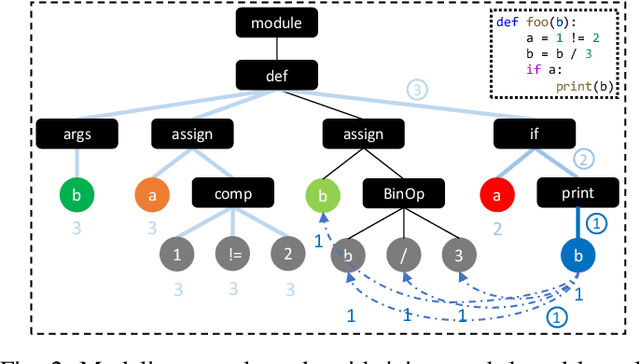
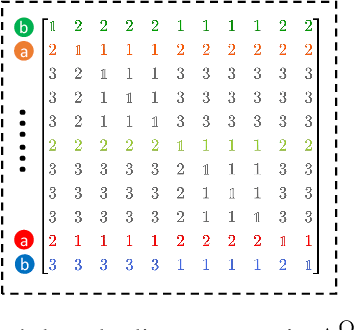
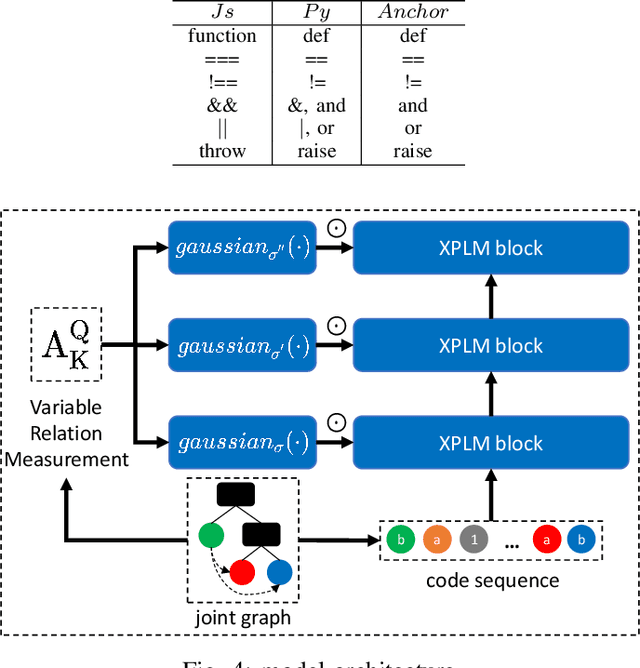
Abstract:Deep learning-based techniques have been widely applied to the program analysis tasks, in fields such as type inference, fault localization, and code summarization. Hitherto deep learning-based software engineering systems rely thoroughly on supervised learning approaches, which require laborious manual effort to collect and label a prohibitively large amount of data. However, most Turing-complete imperative languages share similar control- and data-flow structures, which make it possible to transfer knowledge learned from one language to another. In this paper, we propose cross-lingual adaptation of program analysis, which allows us to leverage prior knowledge learned from the labeled dataset of one language and transfer it to the others. Specifically, we implemented a cross-lingual adaptation framework, PLATO, to transfer a deep learning-based type inference procedure across weakly typed languages, e.g., Python to JavaScript and vice versa. PLATO incorporates a novel joint graph kernelized attention based on abstract syntax tree and control flow graph, and applies anchor word augmentation across different languages. Besides, by leveraging data from strongly typed languages, PLATO improves the perplexity of the backbone cross-programming-language model and the performance of downstream cross-lingual transfer for type inference. Experimental results illustrate that our framework significantly improves the transferability over the baseline method by a large margin.
 Add to Chrome
Add to Chrome Add to Firefox
Add to Firefox Add to Edge
Add to Edge